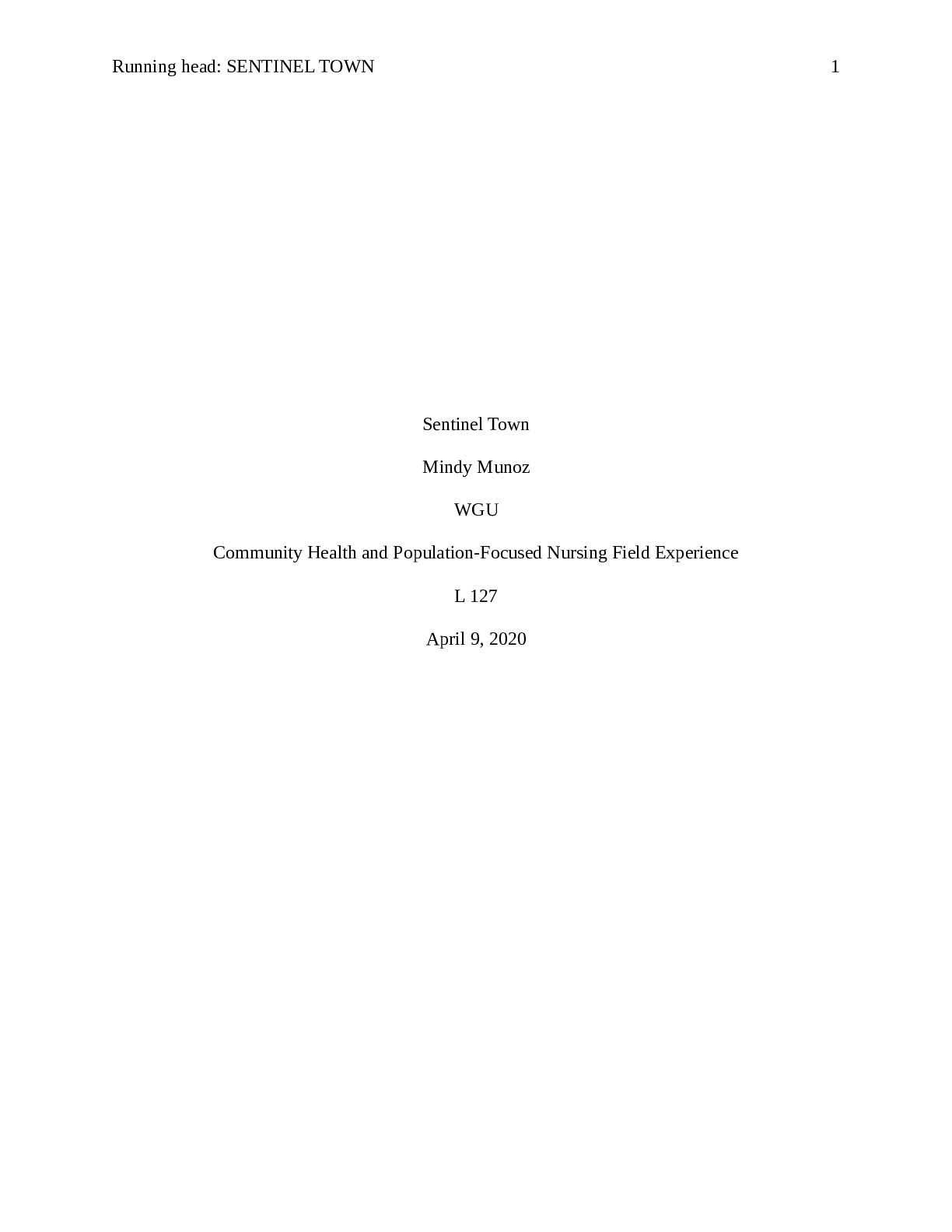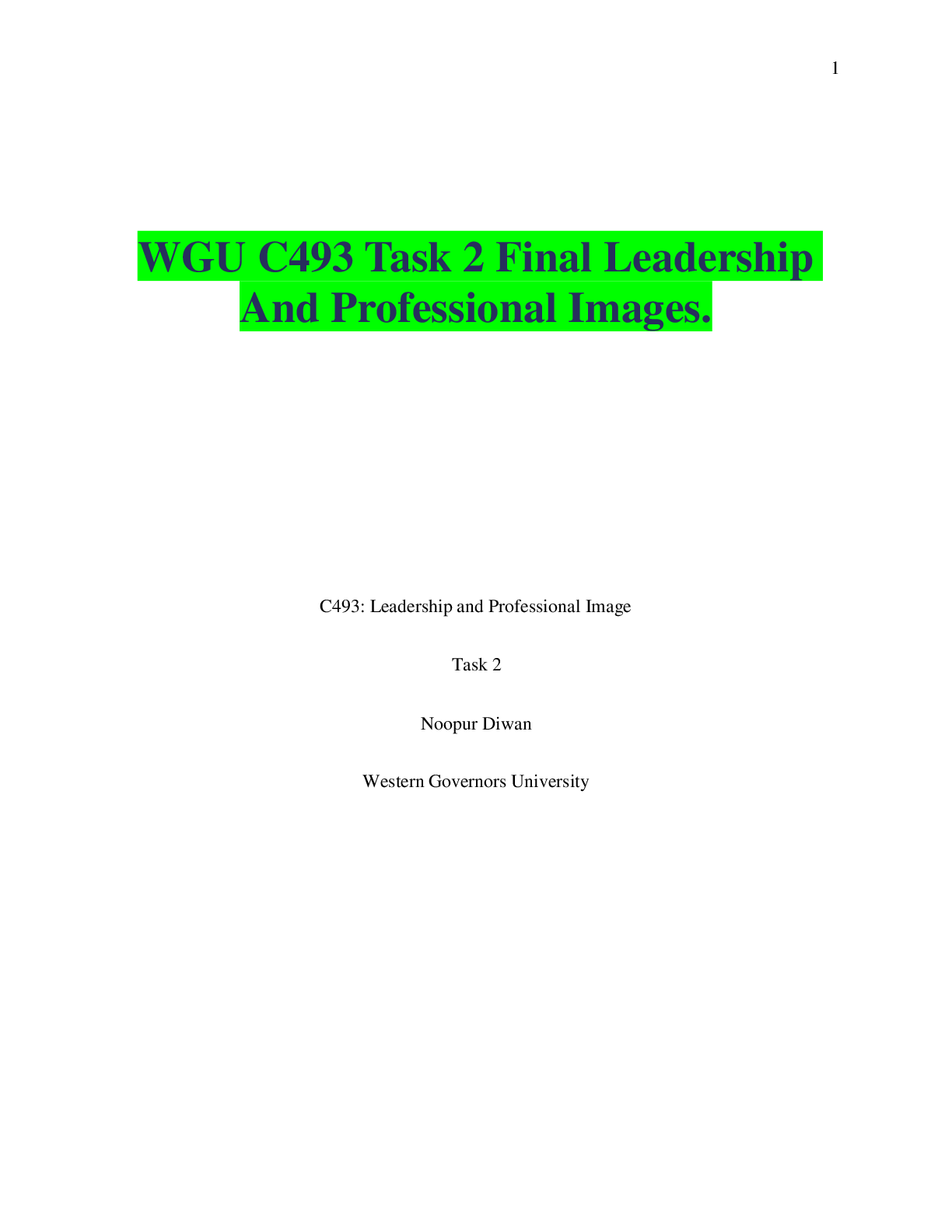Government > Research Paper > Comprehensive Immigration Reform: Exploring the Challenges & Courses of Action University of Marylan (All)
Comprehensive Immigration Reform: Exploring the Challenges & Courses of Action University of Maryland, College ParkHONR 268LFinal policy paper
Document Content and Description Below
Comprehensive Immigration Reform: Exploring the Challenges & Courses of Action Kaitlyn Oberhaus December 15th 2017 Dr. Grant-Wisdom HONR268LOberhaus 2 Comprehensive immigration reform refers to ... combining “increased border enforcement with legalization for unauthorized immigrants and the ability to bring in future workers needed by the U.S. labor market” (Comprehensive). A lack of comprehensive immigration reform has many consequences for the United States. Inaction negatively affects the economy, the agricultural industry, and the unemployment rate. A major inaction of the government was not passing the Senate Bill S.744, The Border Security, Economic Opportunity, and Immigration Modernization Act. This Bill and the situation around it also shows the division in government and how the government and Congress is choosing inaction over a solution. Historically xenophobia, nativism, and racism have taken a negative toll on immigration reform and continue to do so today. President Trump has shown through executive actions that these things will shape his policy also. His executive actions add to policy inaction of comprehensive reform and negatively impact the rights of immigrants. To achieve comprehensive immigration reform, which includes both a Republican and Democratic strong viewpoint, there needs to be more compromise and less extremist policy. In June 2013, the Senate Bill S.744 was not passed. This bill focused on “harness[ing] the power of that tradition in a balanced way that secures a more prosperous future for America” by “committing the resources needed to secure the border, modernize and streamline our current legal immigration system, while creating a tough but fair legalization program for individuals who are currently here” (United States) (A Guide). This Bill was a bipartisan Bill drafted by the ‘gang of eight’ which were Senators Charles Schumer (D-NY), John McCain (R-AZ), Richard Durbin (D-IL), Lindsey Graham (R-SC), Robert Menendez (D-NJ), Marco Rubio (R-FL), Michael Bennet (D-CO), and Jeff Flake (R-AZ) (A Guide). This bill would have started a new W visa program for less-skilled workers, merged the AgJobs and DREAM Acts into an RPI [Show More]
Last updated: 2 years ago
Preview 1 out of 15 pages

Buy this document to get the full access instantly
Instant Download Access after purchase
Buy NowInstant download
We Accept:

Reviews( 0 )
$9.00
Can't find what you want? Try our AI powered Search
Document information
Connected school, study & course
About the document
Uploaded On
May 16, 2021
Number of pages
15
Written in
Additional information
This document has been written for:
Uploaded
May 16, 2021
Downloads
0
Views
50











.png)



